Abstract
Two analyses investigated the effects of choice making on the responding of elementary school students with emotional and behavioral challenges. In the first analysis, 2 participants were given choices from menus of academic tasks, all of which were pertinent to their educational objectives in English and spelling, respectively. Reversal designs showed that the choice-making conditions increased task engagement and reduced disruptive behavior for both students. An additional analysis was performed with a 3rd student in an effort to further distinguish the effects of choice making from preference. In this study, one of the no-choice phases was yoked to a previous choice-making condition. This analysis demonstrated that the choice-making condition was superior to baseline and yoked control phases as determined by levels of task engagement and disruptive behavior. The findings of the two analyses contribute information relevant to students with emotional and behavioral disorders, and to a growing literature on the desirable effects of choice making for students with disabilities and challenging behaviors.
Full text
PDF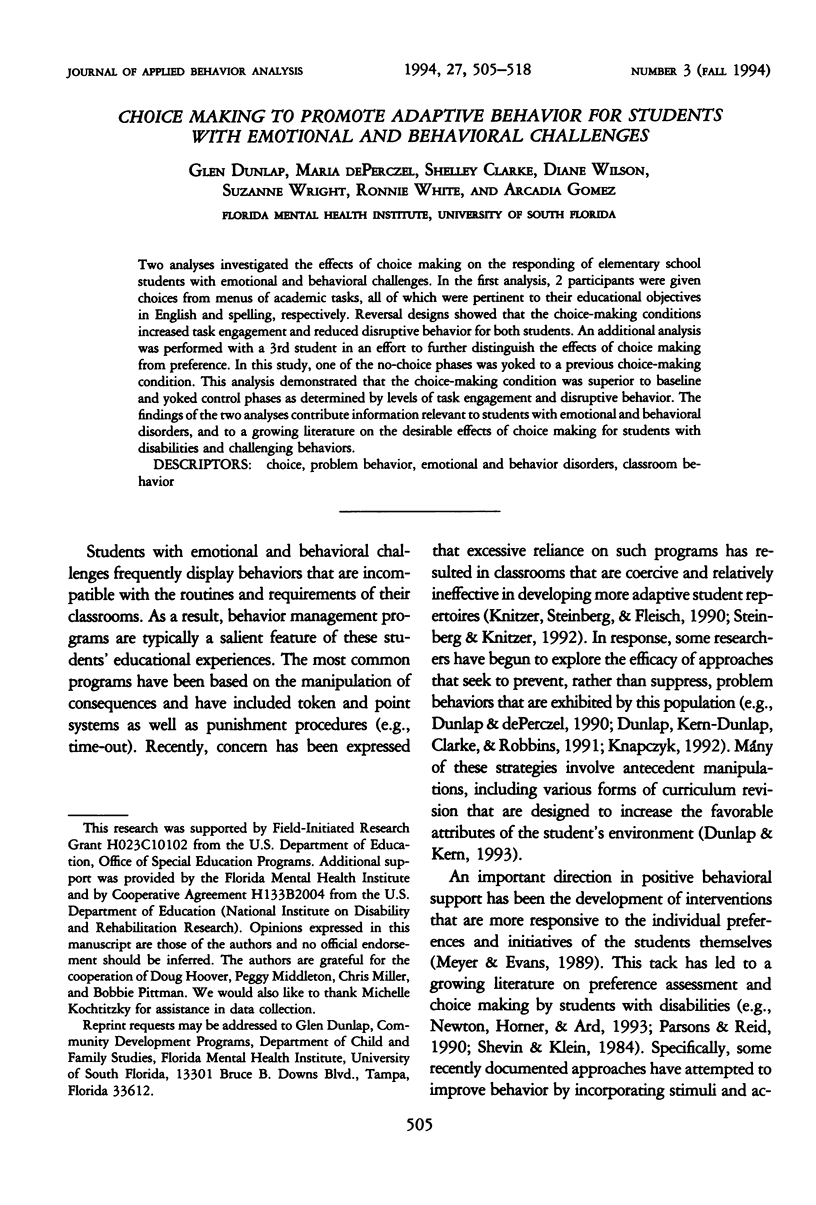
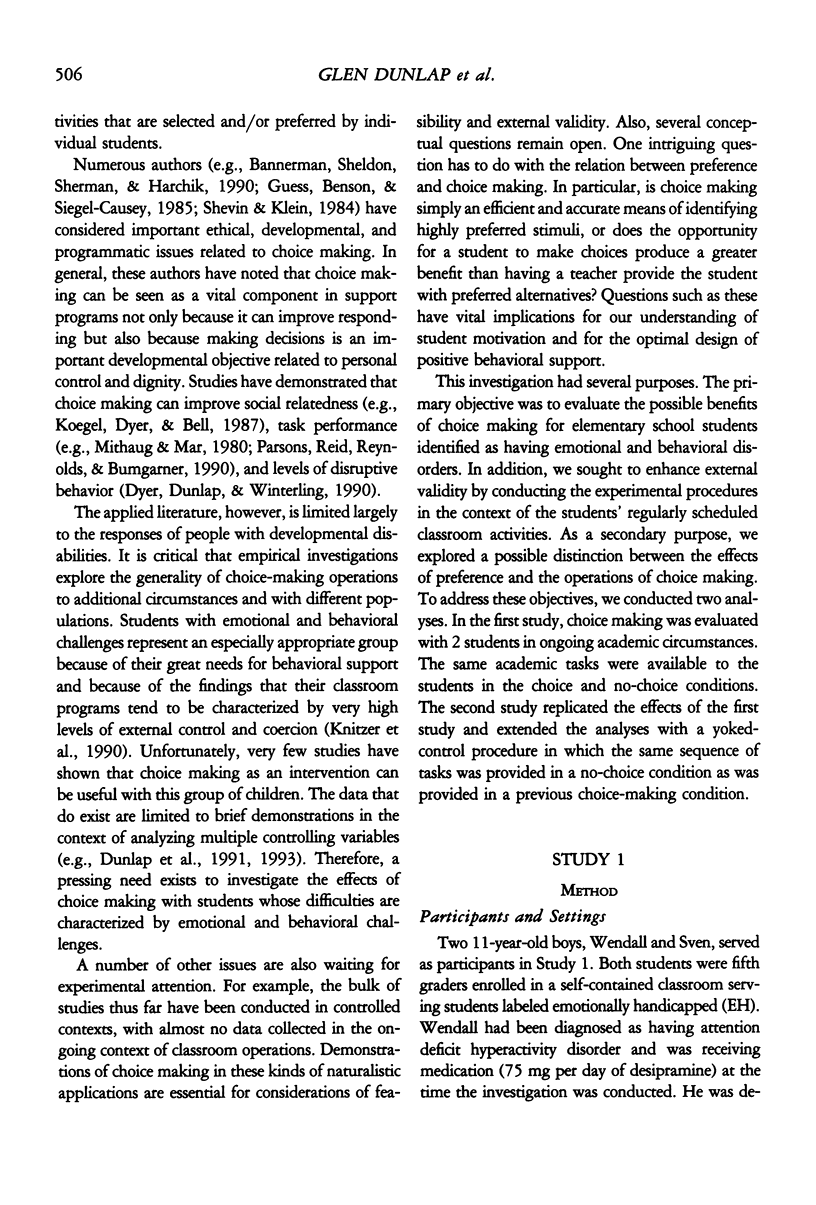
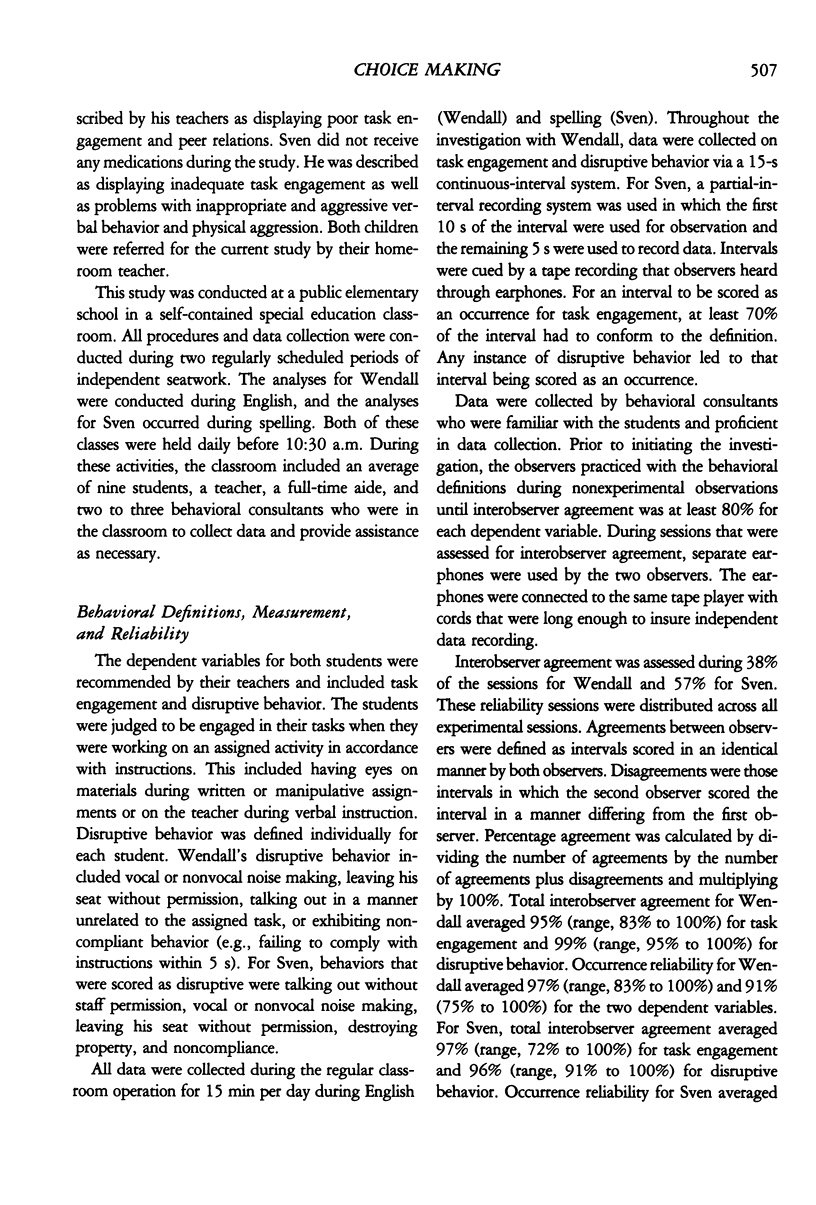
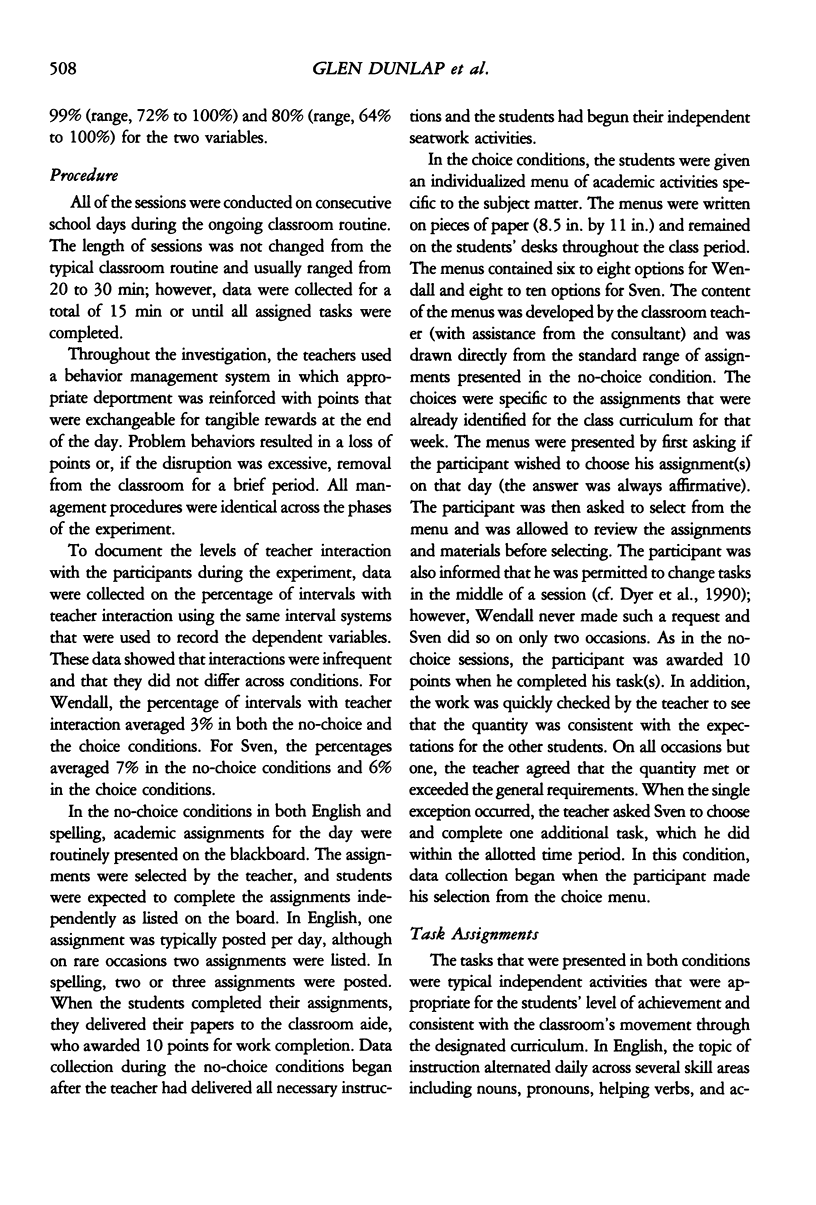
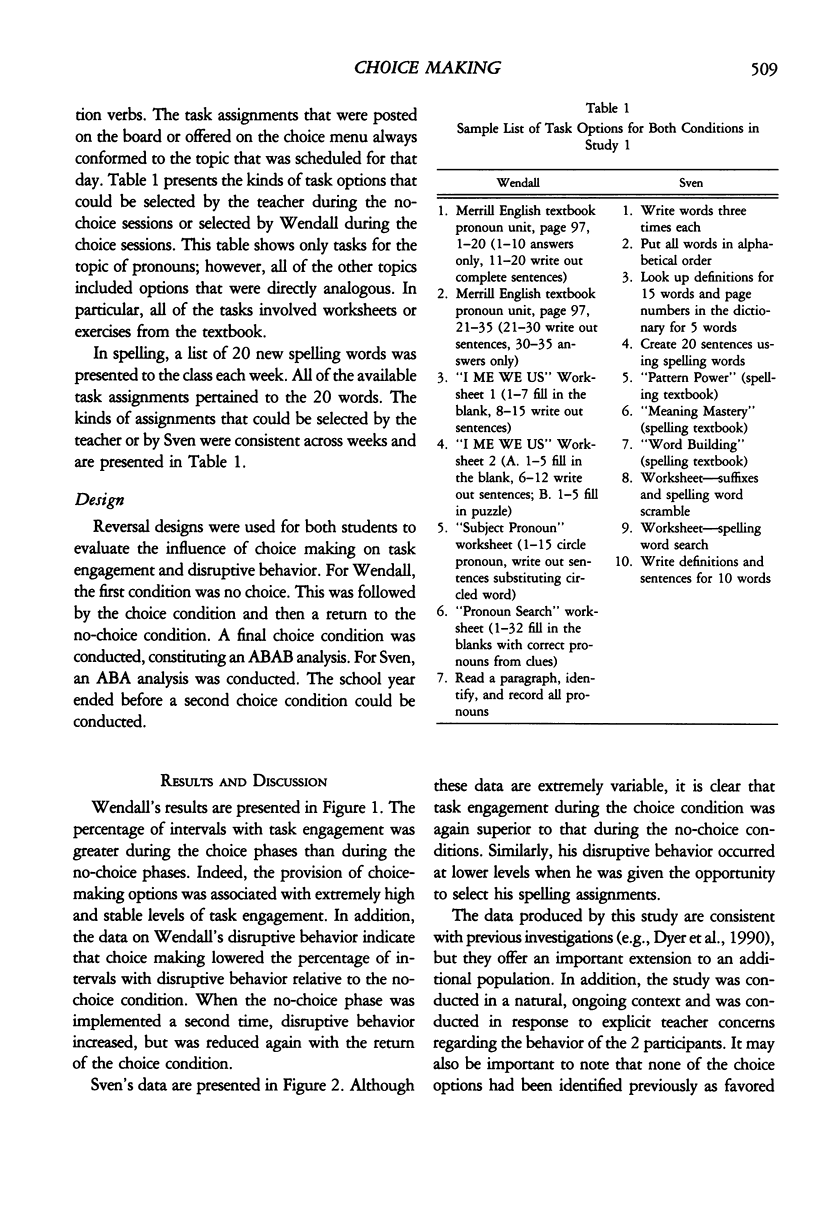
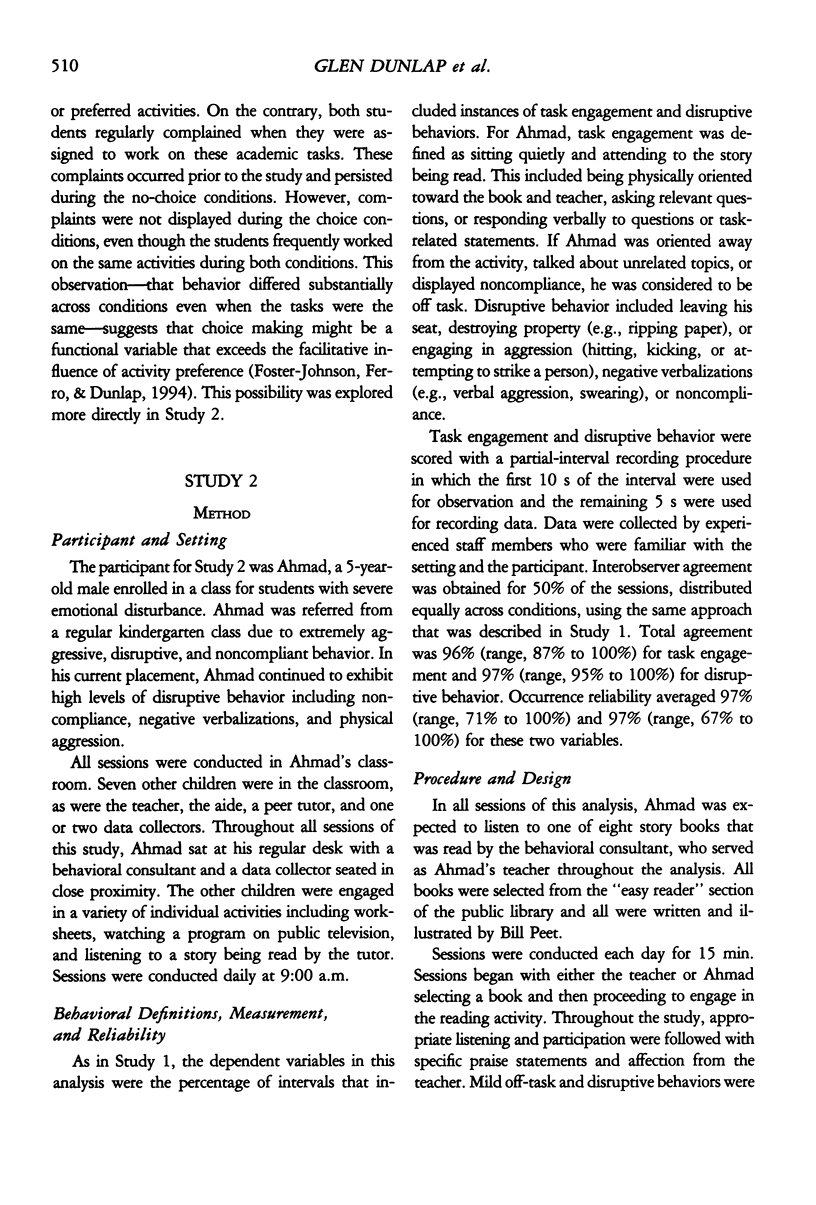

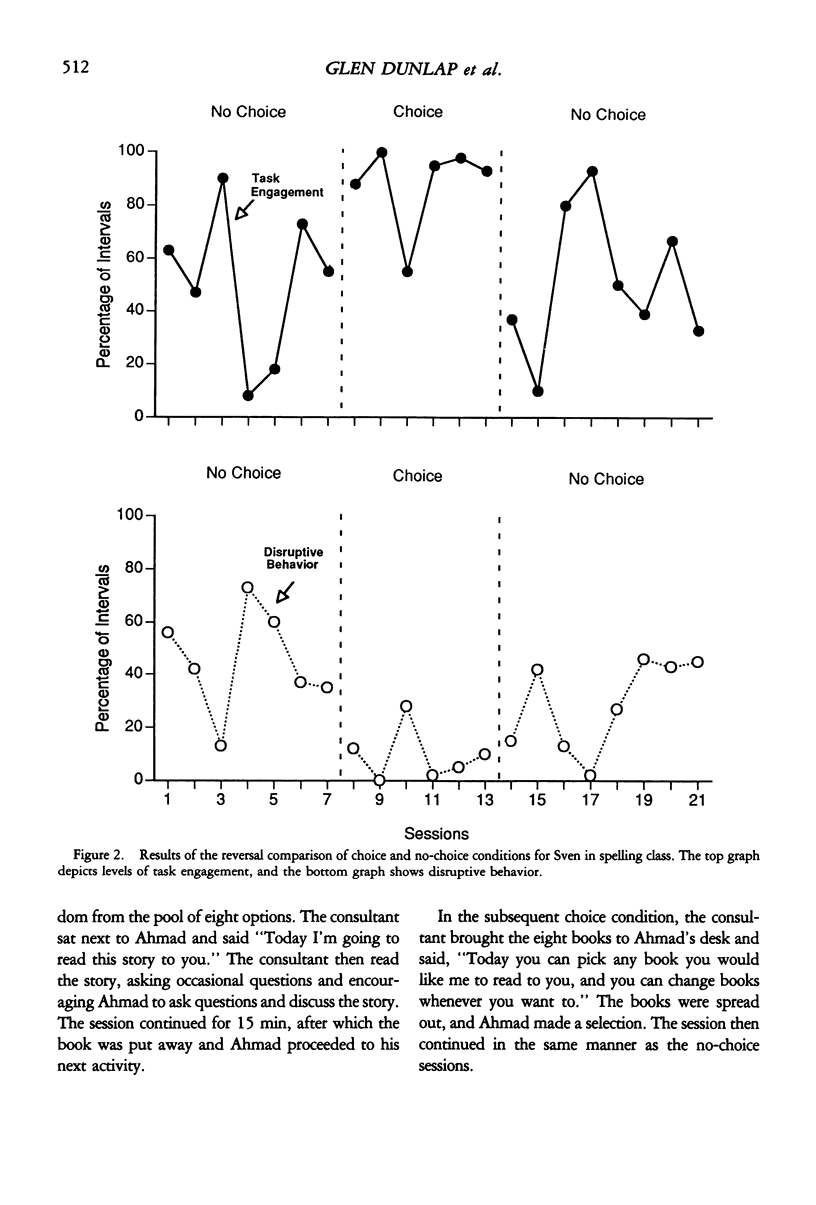
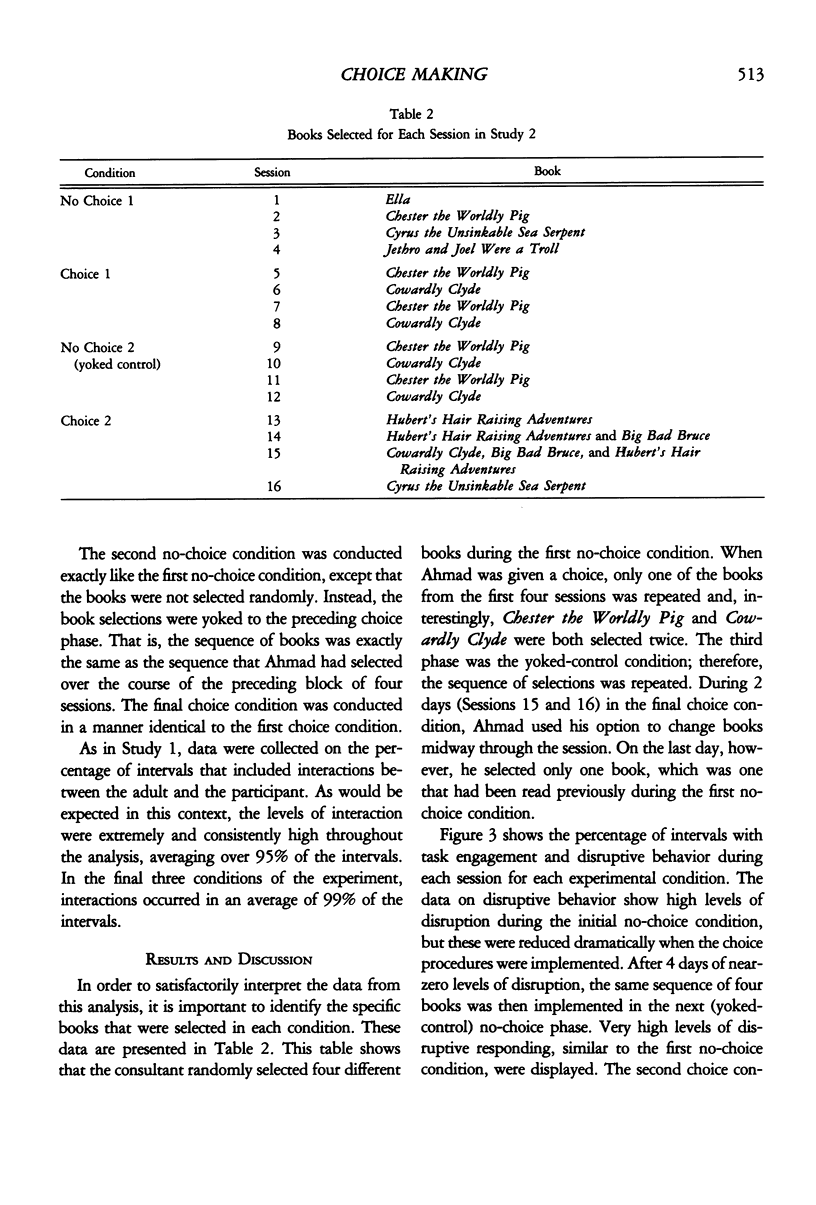
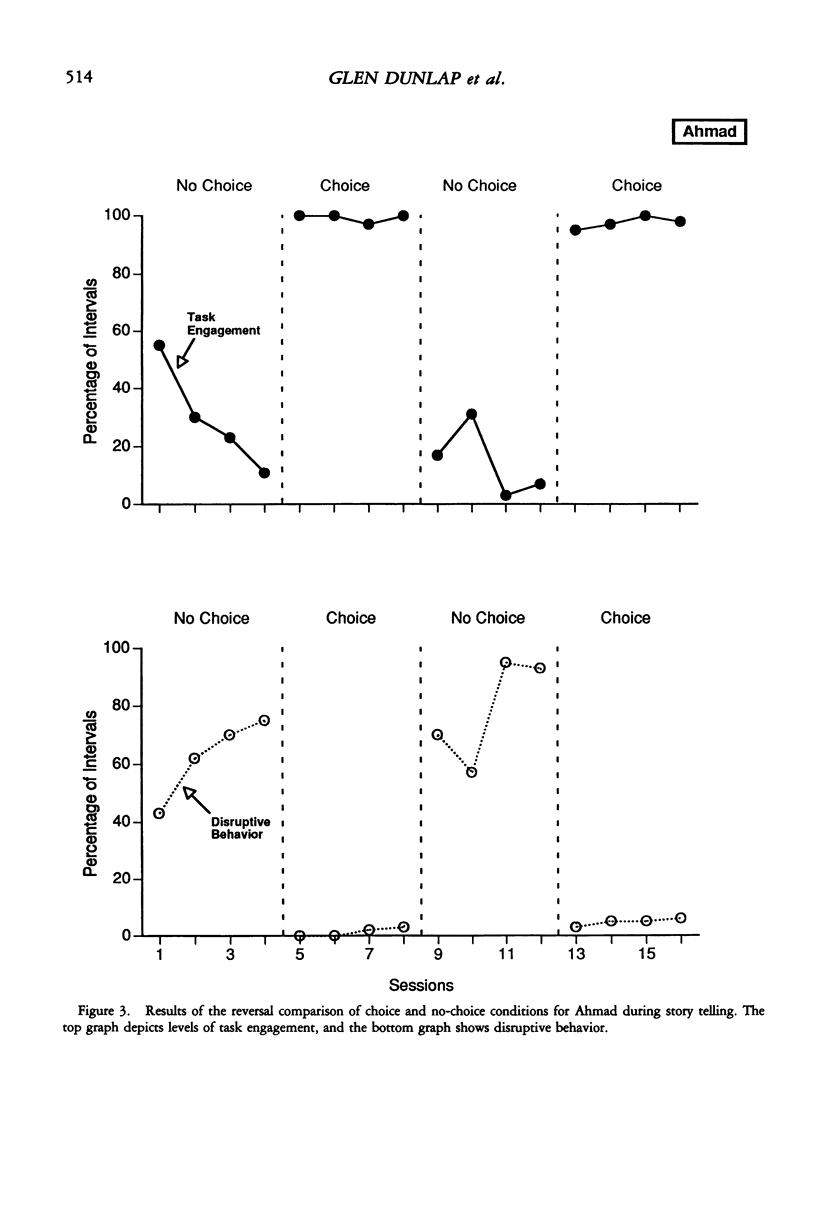
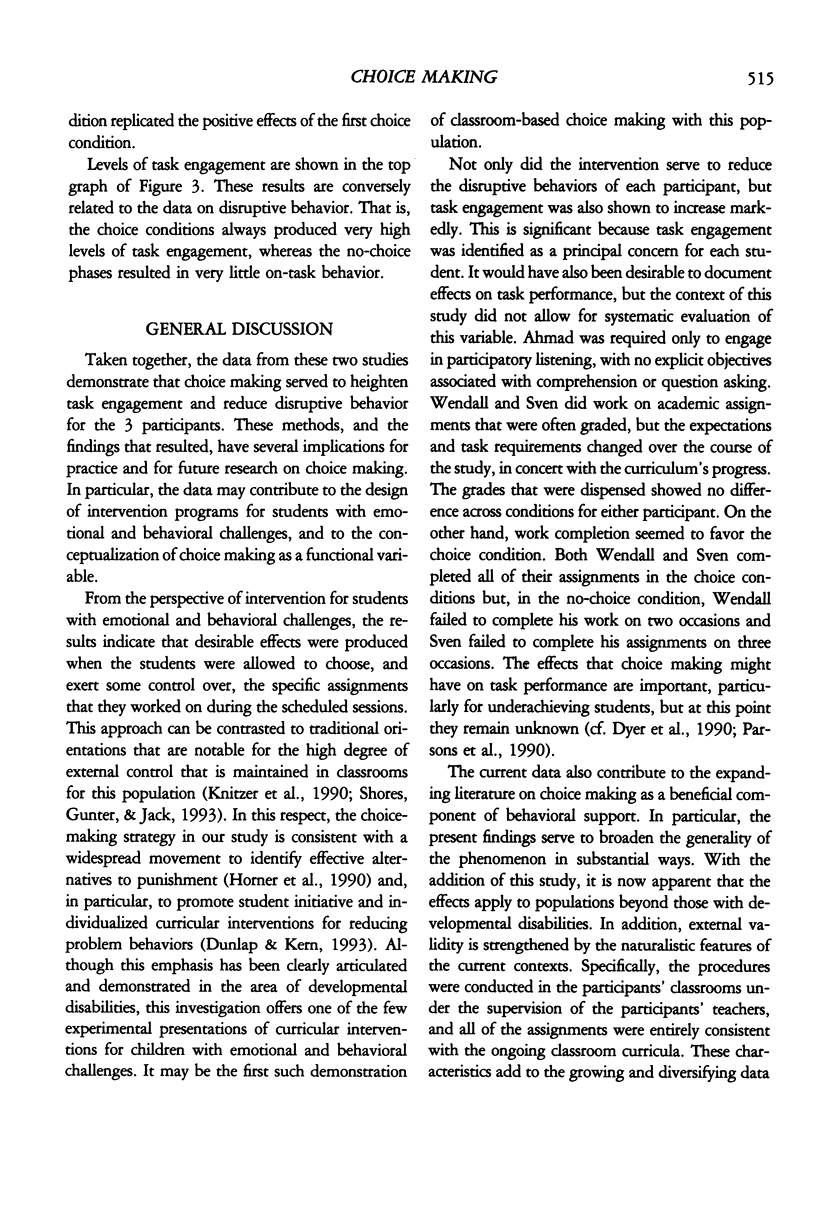
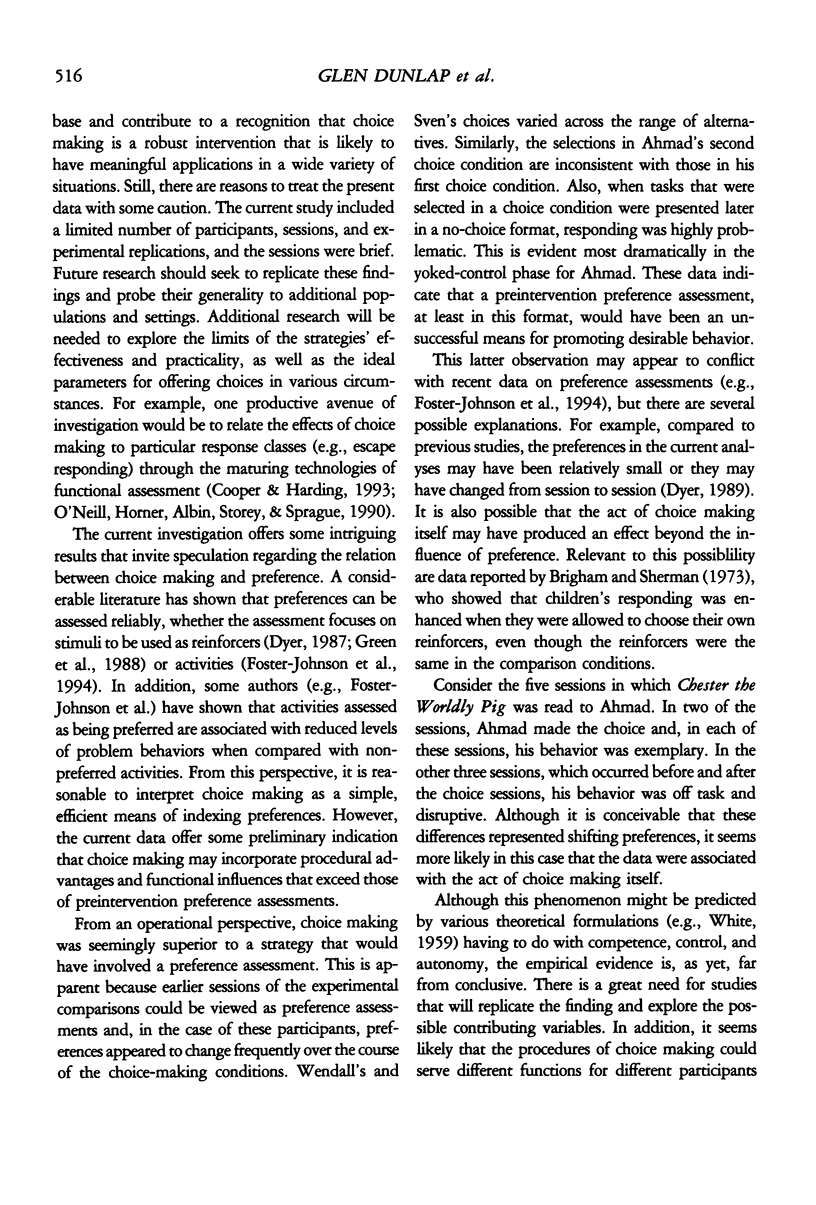
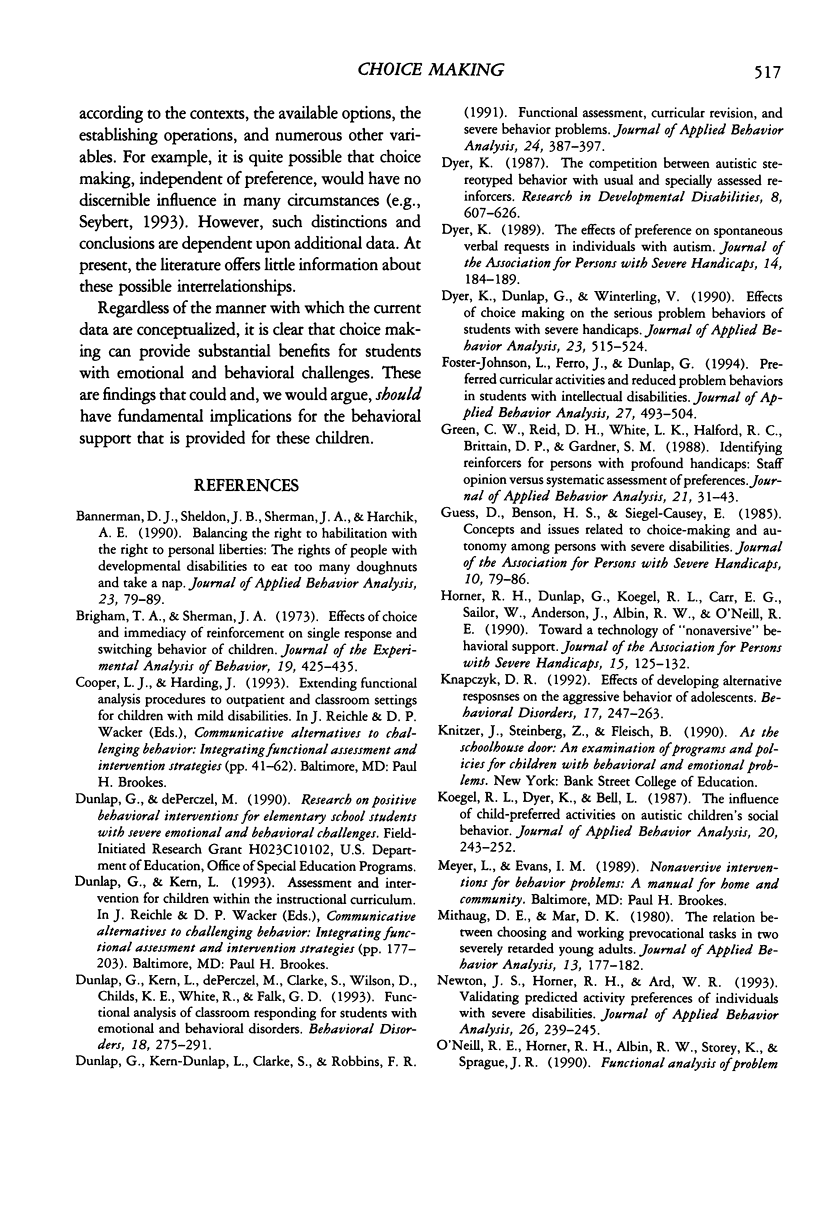
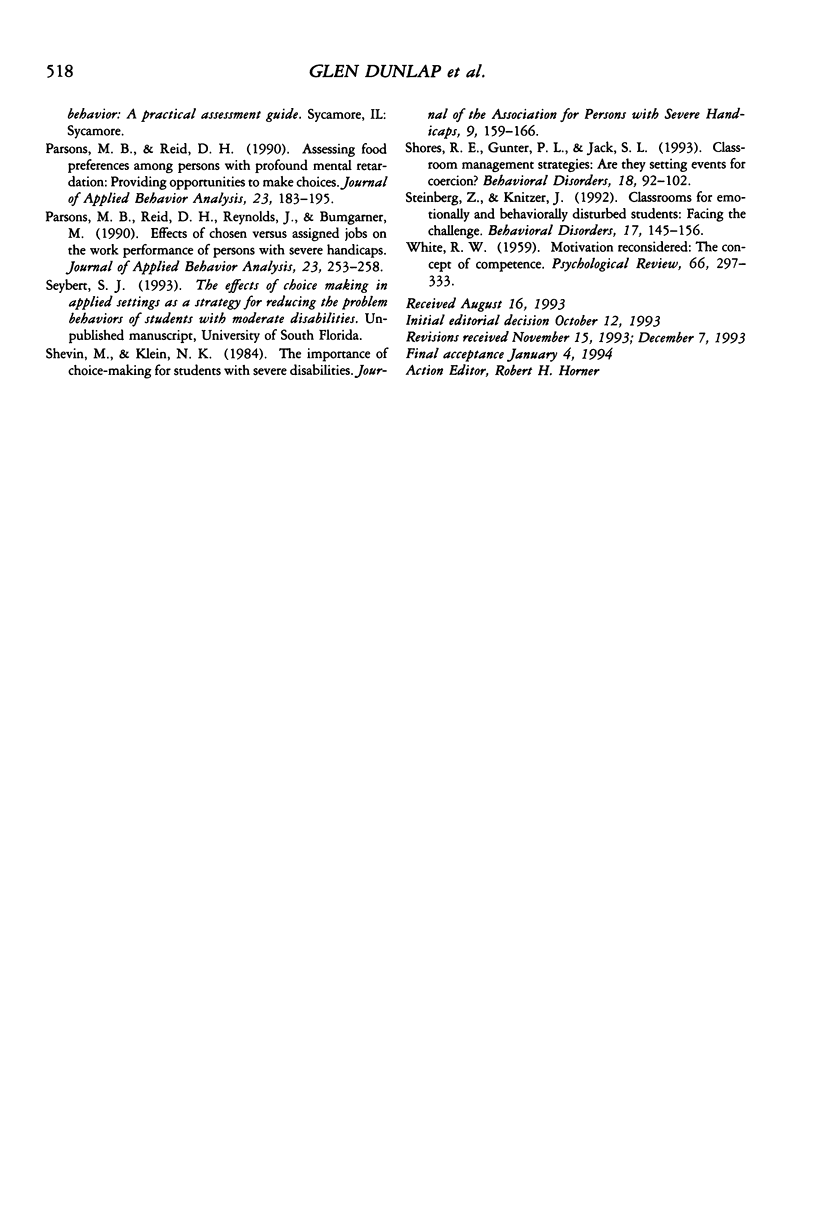
Selected References
These references are in PubMed. This may not be the complete list of references from this article.
- Bannerman D. J., Sheldon J. B., Sherman J. A., Harchik A. E. Balancing the right to habilitation with the right to personal liberties: the rights of people with developmental disabilities to eat too many doughnuts and take a nap. J Appl Behav Anal. 1990 Spring;23(1):79–89. doi: 10.1901/jaba.1990.23-79. [DOI] [PMC free article] [PubMed] [Google Scholar]
- Brigham T. A., Sherman J. A. Effects of choice and immediacy of reinforcement on single response and switching behavior of children. J Exp Anal Behav. 1973 May;19(3):425–435. doi: 10.1901/jeab.1973.19-425. [DOI] [PMC free article] [PubMed] [Google Scholar]
- Dunlap G., Kern-Dunlap L., Clarke S., Robbins F. R. Functional assessment, curricular revision, and severe behavior problems. J Appl Behav Anal. 1991 Summer;24(2):387–397. doi: 10.1901/jaba.1991.24-387. [DOI] [PMC free article] [PubMed] [Google Scholar]
- Dyer K., Dunlap G., Winterling V. Effects of choice making on the serious problem behaviors of students with severe handicaps. J Appl Behav Anal. 1990 Winter;23(4):515–524. doi: 10.1901/jaba.1990.23-515. [DOI] [PMC free article] [PubMed] [Google Scholar]
- Dyer K. The competition of autistic stereotyped behavior with usual and specially assessed reinforcers. Res Dev Disabil. 1987;8(4):607–626. doi: 10.1016/0891-4222(87)90056-4. [DOI] [PubMed] [Google Scholar]
- Foster-Johnson L., Ferro J., Dunlap G. Preferred curricular activities and reduced problem behaviors in students with intellectual disabilities. J Appl Behav Anal. 1994 Fall;27(3):493–504. doi: 10.1901/jaba.1994.27-493. [DOI] [PMC free article] [PubMed] [Google Scholar]
- Green C. W., Reid D. H., White L. K., Halford R. C., Brittain D. P., Gardner S. M. Identifying reinforcers for persons with profound handicaps: staff opinion versus systematic assessment of preferences. J Appl Behav Anal. 1988 Spring;21(1):31–43. doi: 10.1901/jaba.1988.21-31. [DOI] [PMC free article] [PubMed] [Google Scholar]
- Koegel R. L., Dyer K., Bell L. K. The influence of child-preferred activities on autistic children's social behavior. J Appl Behav Anal. 1987 Fall;20(3):243–252. doi: 10.1901/jaba.1987.20-243. [DOI] [PMC free article] [PubMed] [Google Scholar]
- Mithaug D. E., Mar D. K. The relation between choosing and working prevocational tasks in two severely retarded young adults. J Appl Behav Anal. 1980 Spring;13(1):177–182. doi: 10.1901/jaba.1980.13-177. [DOI] [PMC free article] [PubMed] [Google Scholar]
- Newton J. S., Ard W. R., Jr, Horner R. H. Validating predicted activity preferences of individuals with severe disabilities. J Appl Behav Anal. 1993 Summer;26(2):239–245. doi: 10.1901/jaba.1993.26-239. [DOI] [PMC free article] [PubMed] [Google Scholar]
- Parsons M. B., Reid D. H. Assessing food preferences among persons with profound mental retardation: providing opportunities to make choices. J Appl Behav Anal. 1990 Summer;23(2):183–195. doi: 10.1901/jaba.1990.23-183. [DOI] [PMC free article] [PubMed] [Google Scholar]
- Parsons M. B., Reid D. H., Reynolds J., Bumgarner M. Effects of chosen versus assigned jobs on the work performance of persons with severe handicaps. J Appl Behav Anal. 1990 Summer;23(2):253–258. doi: 10.1901/jaba.1990.23-253. [DOI] [PMC free article] [PubMed] [Google Scholar]
- WHITE R. W. Motivation reconsidered: the concept of competence. Psychol Rev. 1959 Sep;66:297–333. doi: 10.1037/h0040934. [DOI] [PubMed] [Google Scholar]


